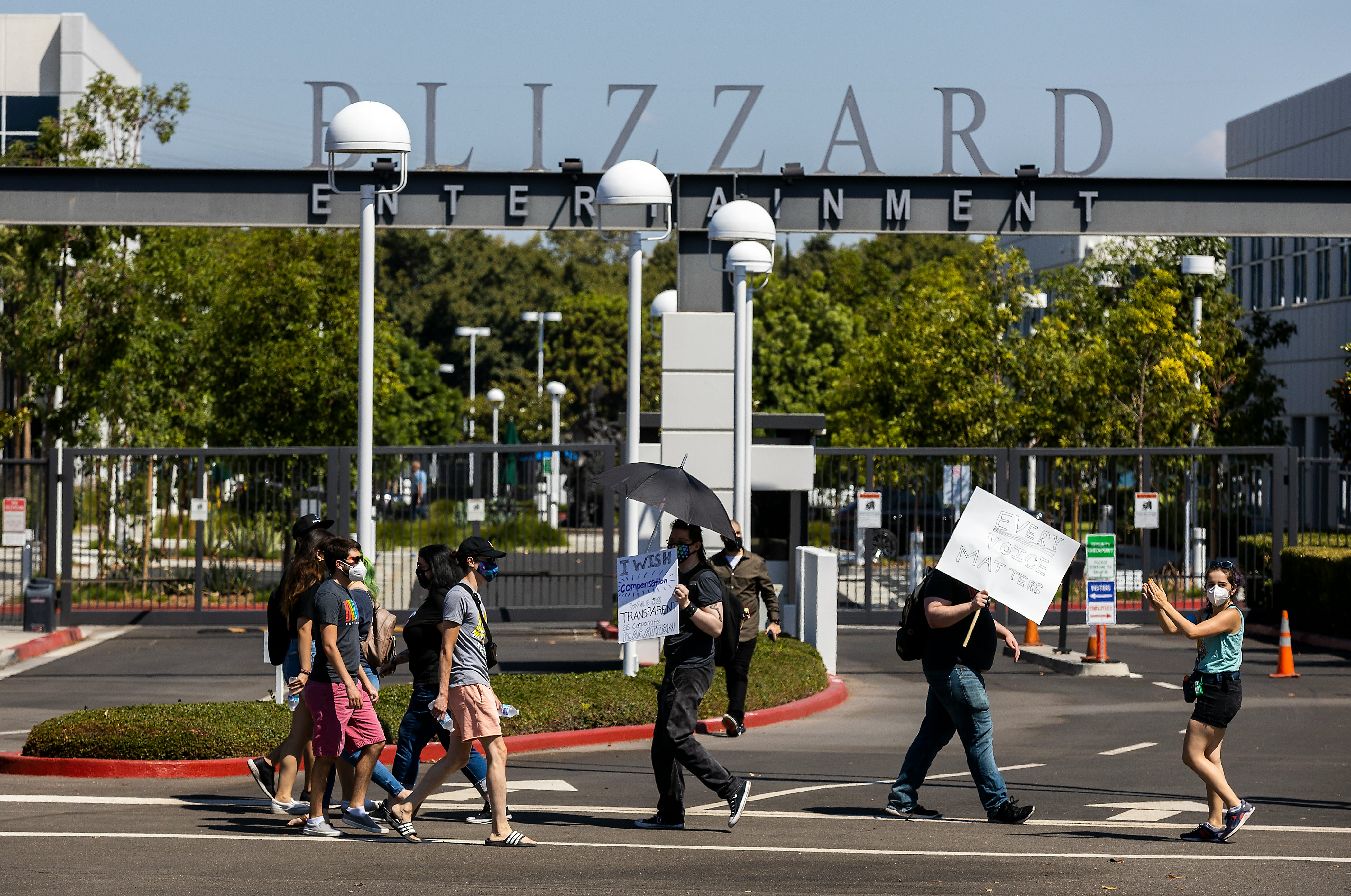
It took two years of hard work to unionize ZeniMax, the Microsoft-owned developer behind Elder Scrolls, Fallout, and more. But for senior tester Zach Lyon, it was worth the wait.
“It was a hugely cathartic moment,” Lyon tells Inverse. “There's so much excitement, there's just so much happiness. Overall, there's so much unity right now.”
And according to Victoria Banos, a senior audio tester at ZeniMax, the official announcement had a palpable impact on the company.
“One thousand percent,” she said. “I have more hope.”
On December 5, Quality Assurance testers at ZeniMax became the latest to unionize in a string of similar efforts across the video game industry. With over 300 QA workers in the newly formed ZeniMax Workers United, this will be the largest video game union in the United States and the first for Microsoft — if the vote passes.

In an industry notorious for its crunch culture, QA testers have historically been subjected to long hours for unsustainable wages. After unionization efforts from QA workers at Activision Blizzard-owned Raven Software, attention to industry-wide unionization has grown substantially, and there are no signs of this stopping.
“We aren’t the first to unionize. We will not be the last,” says Lyon. “I hope that we are just one domino in this.”
On December 5, the ZeniMax Workers United Twitter account released a statement saying, “Today we, a majority of QA workers at ZeniMax, are proud to announce the launch of our union with @CWAunion [Communications Workers of America]. We are the first group of workers at Microsoft to formally unionize. We are empowered to advocate for ourselves & build a future where we can thrive alongside the company.”
“There is already such a culture of fear around organizing in the U.S.”
While unionization efforts at Activision Blizzard (whose acquisition by Microsoft is now the subject of legal action from the Federal Trade Commission) have been met with union-busting tactics from the company, Microsoft has publicly made a labor neutrality agreement with CWA. This means the company will not interfere with any attempts by workers to unionize. QA testers at ZeniMax shared with Inverse that in their unionization efforts so far Microsoft has stuck to this neutrality agreement.
“We really appreciate that, and it has actually helped our unionization efforts,” says Banos, “especially to give those people some more confidence who were kind of on the fence before.”
Microsoft’s stance has been key to getting past one of the biggest obstacles that video game studios face when discussing unionization: fear.

“There is already such a culture of fear around organizing in the U.S. Then you look at the union-busting over at Activision Blizzard, it has a real effect on people,” says Lyon. Banos agrees: “The hardest thing is really trying to just talk to people without fear. There is this pressure industry-wide to not talk about unionization. Don’t talk about issues you might be having with other people.”
But the potential benefits of unionizing outweigh the fear.
Even before Microsoft’s neutrality agreement, ZeniMax workers were willing to take the plunge. ZeniMax Workers United said in a statement released on Twitter that in unionizing they hope to secure fair wages, opportunities for advancement, accountability and transparency at the company, and a voice in decision-making. Many of these demands are attempts to fix a litany of issues at ZeniMax that were detailed in a June report from Kotaku.
“Our union is a guarantee that we will never have to fight just to be heard.”
Banos described the need for permanent work-from-home options, transparency in pay, and paths to promotion. “I’m in a situation where I am doing the work of a team lead without being promoted to that position, and I have no idea when that will happen.”
“If you don’t pay us enough to live where we work, that is a non-starter for a lot of other things,” Lyon adds.
In response to the argument that employees don’t need a union to make gains, Lyon doubles down on its importance.
“While we have been able to push for some improvements, we have no guarantee that those improvements are not temporary,” he says. “Our union is a guarantee that we will never have to fight just to be heard.”
Looking forward, ZWU has great hopes for the impact unionization efforts across the industry could have in the coming months and years, but Banos especially sees potential for Microsoft’s role at ZeniMax.
“I think Microsoft, with the help of the union, could make a standard for the rest of the industry with how crunch is addressed,” she says.
Adds Lyon: “I want to see this entire industry unionized soon. I hope that every QA job is a union job. I hope that every game dev job is a union job.”







